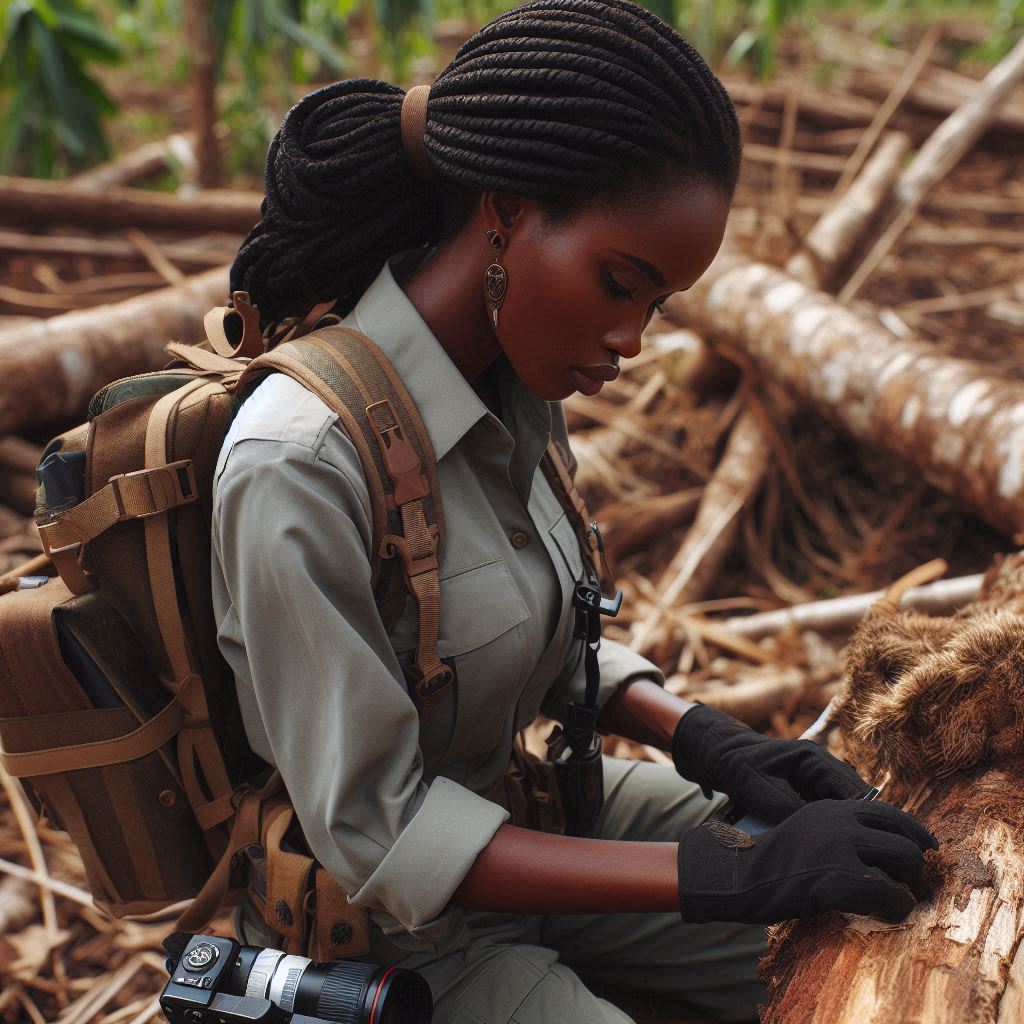Introduction
Wildlife management and eco-tourism are vital for Nigeria’s conservation and economic development. Wildlife management involves protecting animal species and their habitats. Eco-tourism promotes responsible travel to natural areas, benefiting conservation and local communities.
Nigeria’s rich biodiversity includes species like the Cross River gorilla and the West African lion. Effective wildlife management ensures these species’ survival and maintains ecosystem balance. Strategies include creating protected areas, anti-poaching measures, and habitat restoration.
Eco-tourism provides economic incentives for conservation, creating jobs and generating revenue. It attracts tourists who contribute financially to conservation projects. This relationship between eco-tourism and wildlife management enhances sustainability and supports local communities.
Integrating wildlife management and eco-tourism helps address challenges like habitat loss, poaching, and human-wildlife conflict.
Eco-tourism funds anti-poaching patrols, habitat restoration, and community education programs. Engaging locals in eco-tourism promotes coexistence and sustainable practices.
Overall, wildlife management and eco-tourism are crucial for Nigeria’s conservation efforts, sustainable development, and the preservation of natural heritage for future generations.
Wildlife Conservation Efforts in Nigeria
The different government agencies responsible for wildlife conservation in Nigeria
In Nigeria, several government agencies are responsible for wildlife conservation. The Federal Ministry of Environment oversees national environmental policies and regulations.
The National Parks Service (NPS) manages protected areas and national parks across the country. Additionally, the Nigerian Conservation Foundation (NCF) collaborates with the government to implement conservation programs.
The Nigerian Environmental Study/Action Team (NEST) also contributes to conservation efforts through research and advocacy.
Current conservation efforts and initiatives to protect wildlife species in the country
Nigeria employs various conservation efforts to protect its wildlife species. The creation and management of national parks are central to these efforts. Notable examples include Yankari National Park, Gashaka-Gumti National Park, and Cross River National Park.
Anti-poaching initiatives are vital, with rangers patrolling protected areas and utilizing technology such as drones and GPS tracking to monitor and deter illegal activities.
Habitat restoration projects aim to rehabilitate degraded ecosystems, promoting biodiversity and sustainability.
Education and awareness campaigns raise public consciousness about wildlife conservation, while community-based conservation programs engage local communities in protecting natural resources.
Efforts targeting specific species, such as the Cross River gorilla and African elephant, involve habitat protection, anti-poaching measures, and research.
Collaboration with international conservation organizations enhances these initiatives, ensuring a holistic approach to wildlife conservation in Nigeria.
Read: Traditional vs Modern Horticulture in Nigeria
Ecotourism Sites in Nigeria
- Nigeria is home to several popular ecotourism destinations, including national parks, reserves, and wildlife sanctuaries.
- These areas boast a diverse range of unique wildlife species, some of which are classified as endangered or vulnerable.
National Parks
- Yankari National Park
- Gashaka Gumti National Park
- Kamuku National Park
- Yankari National Park is known for its population of elephants, lions, and numerous bird species.
- Gashaka Gumti National Park is home to rare species such as the chimpanzee and the mountain reedbuck.
- Kamuku National Park boasts a variety of wildlife, including leopards, hyenas, and baboons.
Reserves
- Okomu National Park
- Omo Forest Reserve
- Wase Rock Wildlife Sanctuary
- Okomu National Park is a haven for endangered species like the white-throated monkey and the forest elephant.
- Omo Forest Reserve provides habitat for the critically endangered Nigerian chimpanzee.
- Wase Rock Wildlife Sanctuary is known for its populations of rock hyrax, guinea baboons, and various bird species.
Wildlife Sanctuaries
- IITA Forest Reserve
- Zuma Rock Wildlife Sanctuary
- Obudu Mountain Resort
- IITA Forest Reserve is a research center that also serves as a sanctuary for primates and other wildlife species.
- Zuma Rock Wildlife Sanctuary is located near Abuja and houses a variety of reptiles, birds, and mammals.
- Obudu Mountain Resort offers eco-friendly accommodation and opportunities to view wildlife in their natural habitat.
Therefore, Nigeria’s ecotourism sites offer a rich biodiversity and opportunities for wildlife enthusiasts to observe and support conservation efforts for these unique species.
Read: Horticulture and Food Security in Nigeria
Benefits of Wildlife Management and Eco-Tourism
Economic Benefits of Eco-Tourism in Nigeria
Eco-tourism in Nigeria offers various economic benefits for local communities and the overall Nigerian economy.
Increased Job Opportunities
By promoting eco-tourism, local communities can benefit from job creation in the tourism sector, including tour guides, accommodation providers, and souvenir vendors.
Revenue Generation
Eco-tourism attracts foreign exchange through tourist spending on accommodations, food, transportation, and entrance fees to wildlife reserves and parks.
Infrastructure Development
To cater to the needs of eco-tourists, there is a demand for improved infrastructure such as roads, hotels, restaurants, and recreational facilities, leading to overall development in the region.
Sustainable Livelihoods
Local communities can diversify their income sources by engaging in eco-tourism activities, reducing dependency on traditional and sometimes unsustainable livelihoods.
Importance of Wildlife Management for Biodiversity Conservation
Wildlife management plays a crucial role in contributing to biodiversity conservation and environmental sustainability in Nigeria.
Habitat Protection
Effective wildlife management practices help protect natural habitats, which are essential for preserving the diverse flora and fauna species in Nigeria.
Species Conservation
Through proper management, endangered wildlife species can be protected from extinction, ensuring the survival of critical ecological components in the ecosystem.
Promotion of Ecological Balance
By managing wildlife populations, ecological balance is maintained, preventing overpopulation of certain species that can have detrimental effects on other species and the environment.
Enhanced Ecosystem Services
Conserving wildlife habitats and species contributes to the provision of ecosystem services such as water purification, pollination, and carbon sequestration, benefiting both wildlife and humans.
Read: Scholarship and Funding Opportunities for Forestry Students in Nigeria

Uncover the Details: Best Practices for Livestock Waste Recycling
Uncover the Details: Water Management Solutions for Livestock Farms
Challenges Facing Wildlife Management and Eco-Tourism in Nigeria
Poaching remains a persistent threat to Nigeria’s wildlife, driven by the illegal trade in animal parts. Habitat destruction, primarily due to deforestation and urban expansion, further exacerbates the plight of endangered species.
Additionally, inadequate funding poses significant challenges to conservation efforts, hindering essential initiatives.
The Need for Improved Regulations and Enforcement Mechanisms
Enhancing regulations and enforcement is imperative to protect wildlife and promote sustainable tourism practices. Strengthening laws against poaching and illegal wildlife trade is essential.
Moreover, enforcing penalties for offenders and enhancing surveillance in protected areas can deter illicit activities. Additionally, implementing measures to mitigate habitat destruction, such as land-use planning and reforestation programs, is crucial.
Promoting Sustainable Tourism Practices
Encouraging responsible tourism practices is vital for minimizing the ecological footprint of visitors. This includes promoting wildlife-friendly tourism activities and educating tourists about conservation ethics.
Furthermore, fostering partnerships between government agencies, conservation organizations, and local communities can help develop ecotourism initiatives that benefit both wildlife and livelihoods.
As we confront these challenges, it’s evident that collaborative efforts are essential to safeguard Nigeria’s wildlife and promote sustainable tourism.
By addressing issues such as poaching, habitat destruction, and funding constraints, we can pave the way for a future where wildlife thrives alongside responsible tourism practices.
Let us rally behind improved regulations and enforcement mechanisms, ensuring the protection of Nigeria’s natural treasures for generations to come.
Read: Field Work & Practical Training in Nigerian Forestry Schools
Conclusion
Throughout this exploration of wildlife management and eco-tourism in Nigeria, we’ve delved into the vital roles these practices play in the country’s conservation and development landscape.
From safeguarding biodiversity to fostering sustainable growth, the significance of these endeavors cannot be overstated.
Wildlife management stands as a bulwark against the threats that loom over Nigeria’s diverse ecosystems. By preserving habitats and safeguarding endangered species, it ensures the delicate balance of nature persists.
Similarly, eco-tourism emerges as a beacon of sustainable development, offering economic opportunities while promoting environmental stewardship.
As we reflect on these key points, it becomes evident that the harmonious coexistence of wildlife and human activities is imperative. Nigeria’s biodiversity is not only a source of pride but also a reservoir of invaluable ecological services.
By embracing responsible tourism practices and supporting conservation initiatives, we pledge to uphold this legacy for future generations.
Let us, as stewards of our natural heritage, commit to championing wildlife management and eco-tourism in Nigeria. Together, we can forge a path towards a future where thriving ecosystems and vibrant communities flourish hand in hand.




